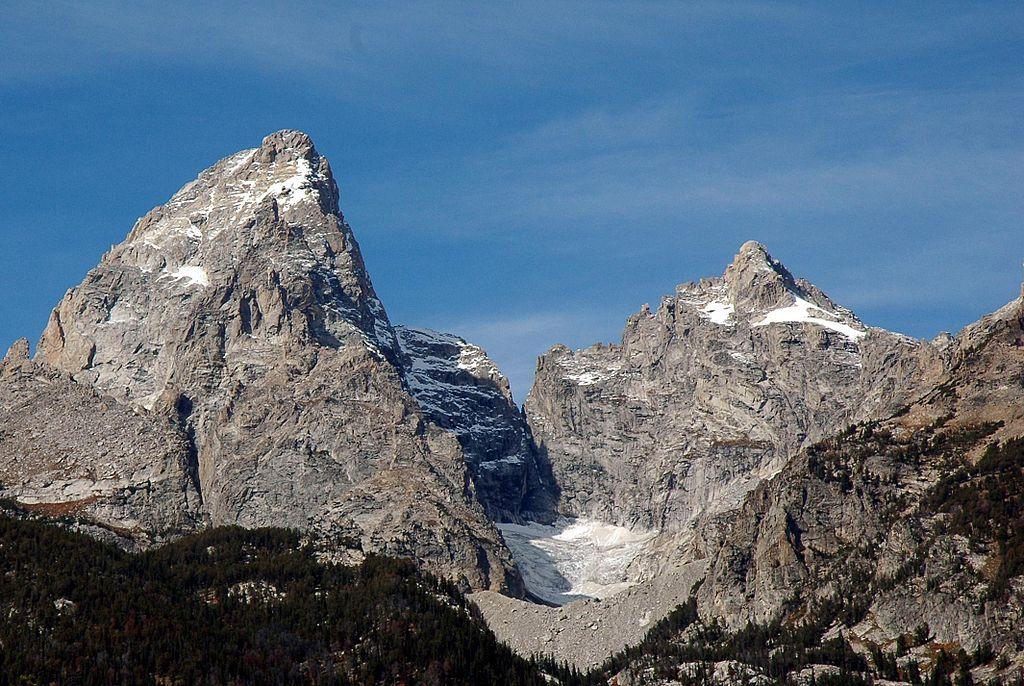
It's possible that Teton Glacier simply went into hibernation rather than completely melting away during the early Holocene, according to new research/chascar via Wikipedia
While it's long been thought the Rocky Mountains lost all their glaciers during the early Holocene warming, research now suggests that those in the Tetons of western Wyoming might have simply gone dormant under debris fields.
Scientists who explored that possibility say a continuous 10,000-year record of alpine glacier fluctuations in the Teton Range of today's Grand Teton National Park "suggests that some glacial ice in the Western U.S. persisted in a reduced, essentially dormant state during periods of early Holocene warming."
The thinking is that debris fields that spread across the Teton glaciers acted as insulation from the warming climate.
"The long-term survival of glacial ice through warm conditions highlights the potential role of debris-covered glaciers and/or rock glaciers to continue providing ecosystem services into the future, despite unfavorable climatic conditions," says Darren Larsen, the lead author of the study.
Retreating glaciers are a hallmark of modern climate change, but due to an incomplete glacial record, little is known about how Western U.S. glaciers responded to temperature and precipitation changes thousands of years ago. To construct a continuous record, Larsen and colleagues sampled sediment cores from two lake basins in the Tetons - Delta Lake, a glacial lake basin that provided a complementary record of glacier activity, and other nearby lakes including Surprise Lake, a nonglacial lake basin that provided a record of climate variability.
By using accelerator mass spectrometry radiocarbon dating, the researchers developed composite rock layer sequences that documented changes in the glaciers as they endured shifts in climate over ten millennia. While sediment flux and meltwater from the Teton Glacier appeared to decrease during a warm period between about 10,000 and 6,300 years ago, Delta Lake sediments maintained distinctly glacial characteristics that suggest glacial ice remained.



Add comment